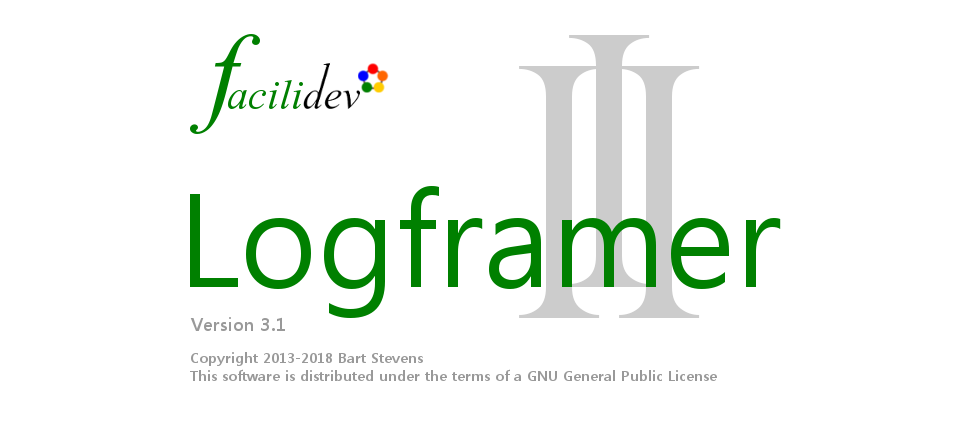
Recent blog posts
- Website occasionaly down
- Logframer training videos by Atiq Rehman
- Logframer Training at University of Blida (Algeria)
- Update of Logframer 3.1
- Logframer 3.1 is out (y disponible en español)
- Installation problem
- IATI part II – Does IATI provides us with a better understanding of aid flows?
- IATI part I – What is the International Aid Transparency Initiative?
- Logframer by the Numbers - 31000 Downloads and Counting
- Logframer 3.0 preview
LFA: how to involve the beneficiaries in the design of the project
 The Logical Framework Approach or LFA is a participatory way to design the project's core elements by means of a workshop - or a series of workshops - with the key stakeholders. It allows you to decide upon the project's main purpose, the concrete outputs it is supposed to achieve, the activities that you could do and so on together with the people that will benefit from the project. LFA provides a step-by-step method to analyse the project's environment, identify key stakeholders, identify the problems that the project should address and decide upon a strategy to deal with these problems. And although LFA is primarily a tool to design a project, it can also be used for its execution, for reporting, for monitoring and for evaluations.
The Logical Framework Approach or LFA is a participatory way to design the project's core elements by means of a workshop - or a series of workshops - with the key stakeholders. It allows you to decide upon the project's main purpose, the concrete outputs it is supposed to achieve, the activities that you could do and so on together with the people that will benefit from the project. LFA provides a step-by-step method to analyse the project's environment, identify key stakeholders, identify the problems that the project should address and decide upon a strategy to deal with these problems. And although LFA is primarily a tool to design a project, it can also be used for its execution, for reporting, for monitoring and for evaluations.
Project Cycle Management or PCM
 Project Cycle Management or PCM is an approach that allows you to manage many different projects and improve the quality of your projects over time. PCM uses the idea of a continuous learning cycle and incorporates logical framework analysis to guarantee that the beneficiaries are involved in the project's design. However, PCM's built-in flexibility is often threatened by the way its tools and models are used in a rigid way by donors and strong NGO partners.
Project Cycle Management or PCM is an approach that allows you to manage many different projects and improve the quality of your projects over time. PCM uses the idea of a continuous learning cycle and incorporates logical framework analysis to guarantee that the beneficiaries are involved in the project's design. However, PCM's built-in flexibility is often threatened by the way its tools and models are used in a rigid way by donors and strong NGO partners.

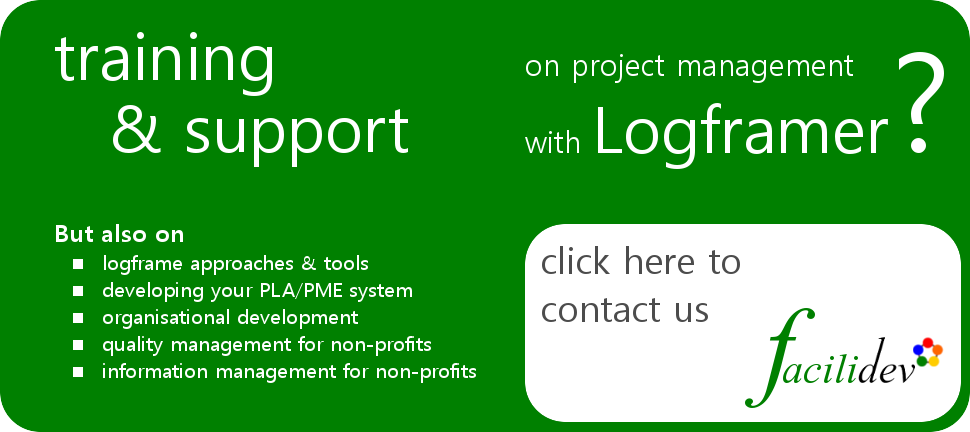
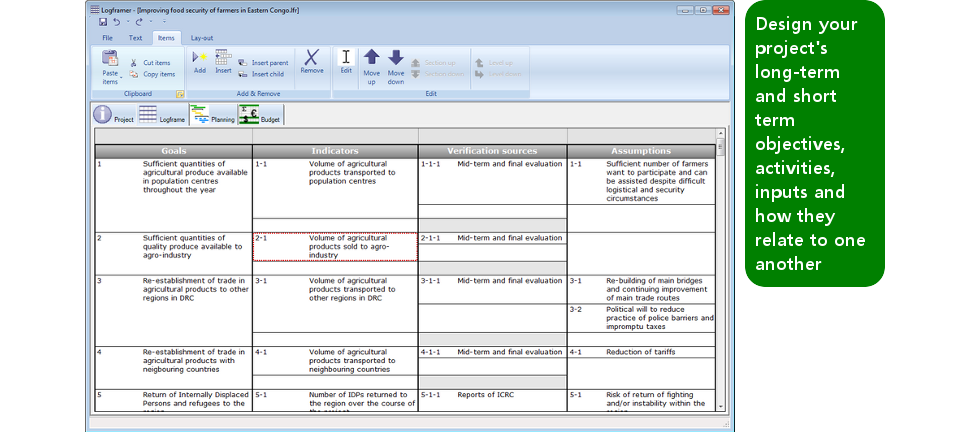
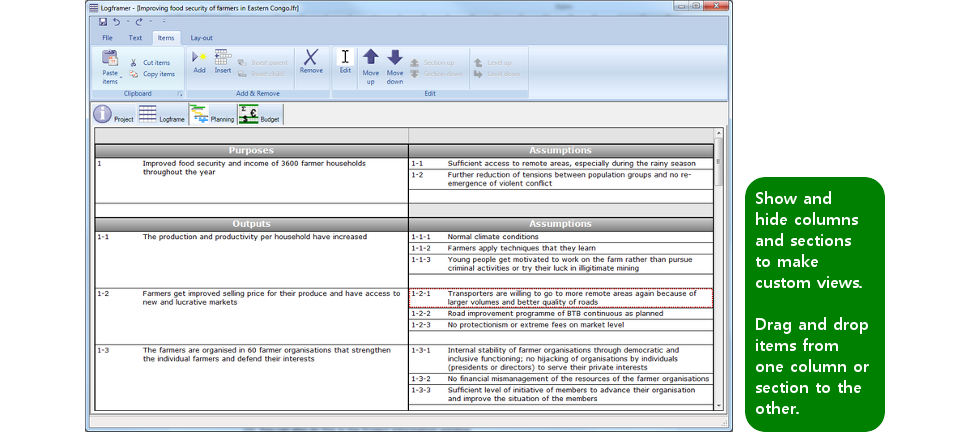
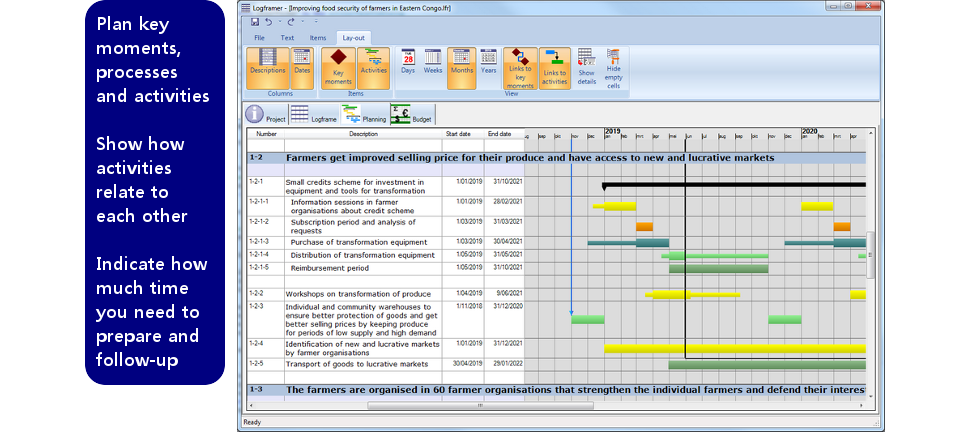
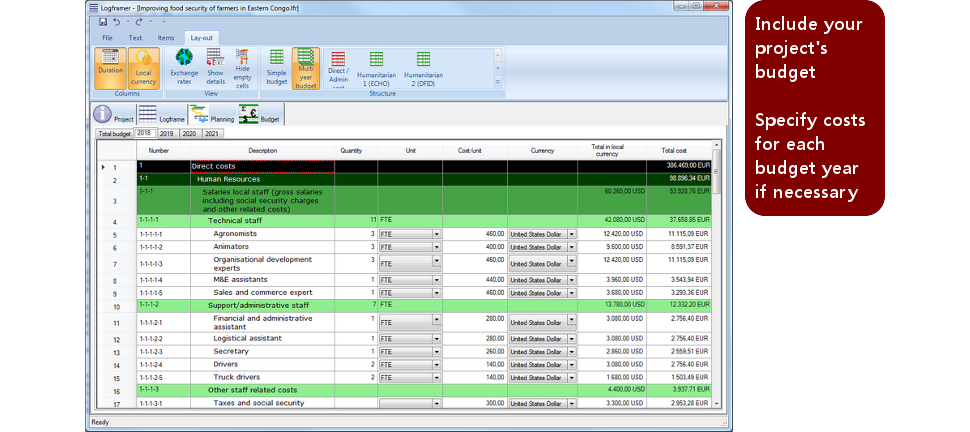
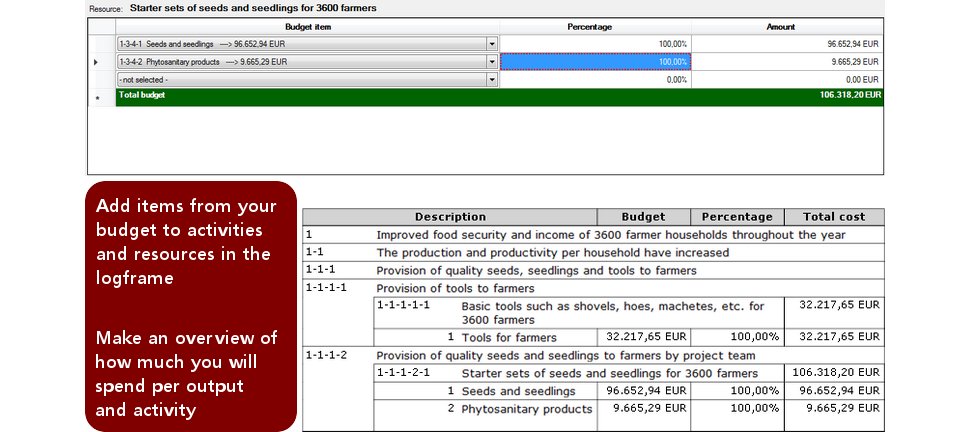
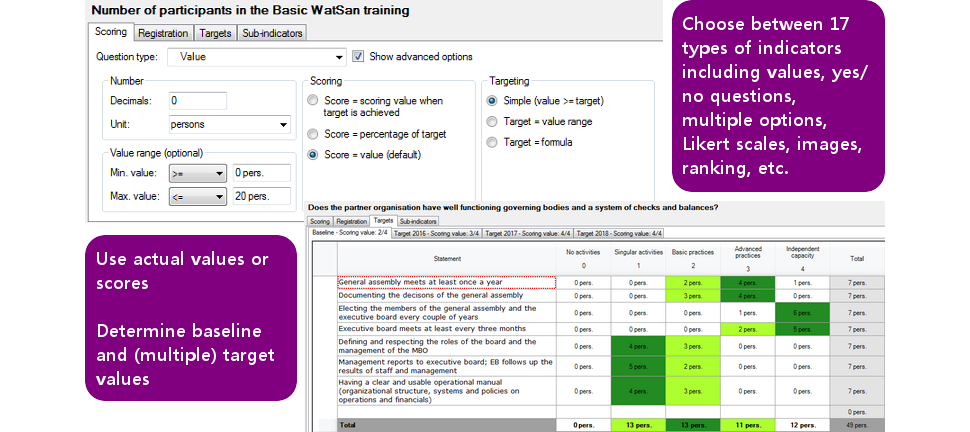
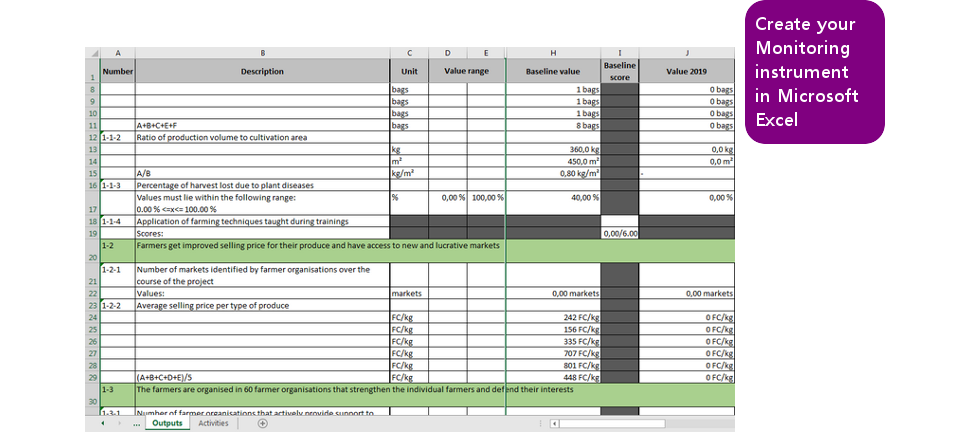
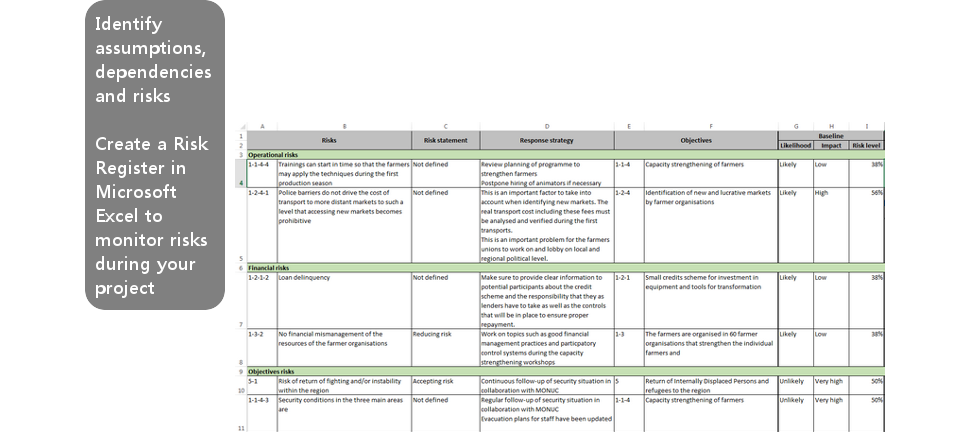

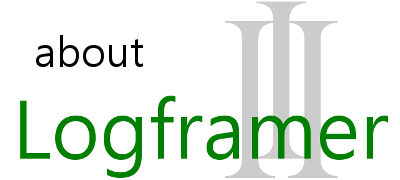


 The logical framework or logframe is a project management tool, that can be used to design, implement, monitor and evaluate a project. The logframe presents a wealth of information related to your project in
The logical framework or logframe is a project management tool, that can be used to design, implement, monitor and evaluate a project. The logframe presents a wealth of information related to your project in 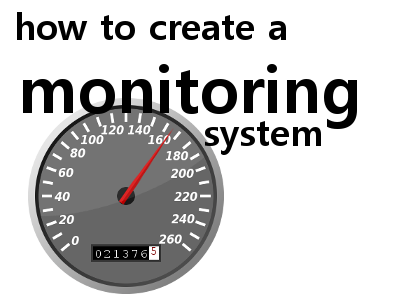



Recent comments